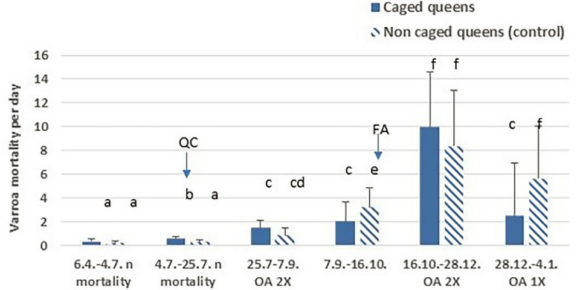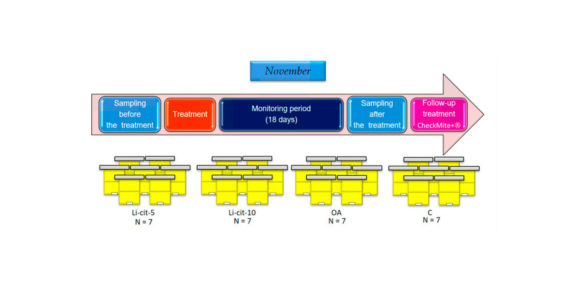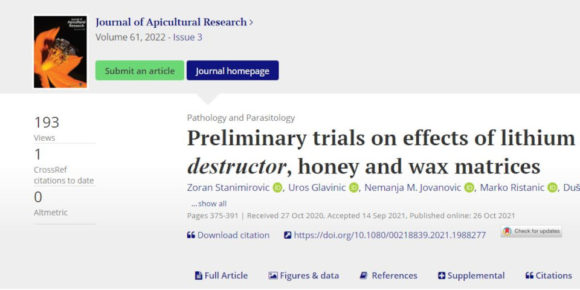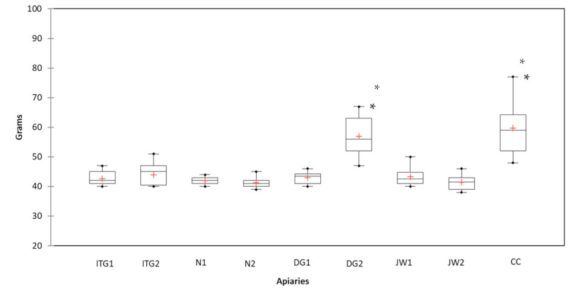Sustainable varroa mite (Varroa destructor) control in field conditions
Experiments assessed the comparative efficacy of oxalic acid solution (OA) and combination of formic acid (FA) evaporation and trickling OA to control the honey bee mite, Varroa destructor, at two apiary locations. Queen caging, consecutive OA treatments of broodless colonies, or combined treatments using OA and FA in colonies with brood increased mite mortality (P…













